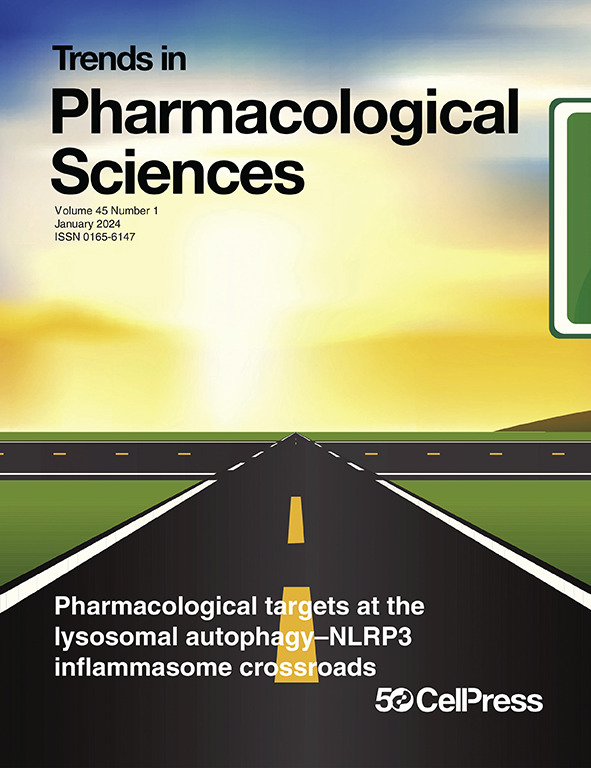靶向树突状细胞驱动 PDAC 免疫疗法反应。
IF 19.9
1区 医学
Q1 PHARMACOLOGY & PHARMACY
Trends in pharmacological sciences
Pub Date : 2024-12-01
Epub Date: 2024-11-06
DOI:10.1016/j.tips.2024.10.009
引用次数: 0
摘要
胰腺腺癌(PDAC)历来对免疫疗法反应迟钝,主要原因是抗原负荷较低以及缺乏肿瘤浸润的树突状细胞(DC)和T细胞。Mahadevan 及其同事最近的一项研究表明,通过使用工程化 DC1 疫苗增加 DC 浸润可使 PDAC 对免疫疗法敏感。本文章由计算机程序翻译,如有差异,请以英文原文为准。
Targeting dendritic cells to drive PDAC immunotherapy response.
Pancreatic adenocarcinoma (PDAC) has been historically unresponsive to immunotherapy, predominantly due to lower antigen loads and a lack of tumor-infiltrating dendritic cells (DCs) and T cells. A recent study by Mahadevan and colleagues demonstrates that increasing DC infiltration through use of an engineered DC1 vaccine can sensitize PDAC to immunotherapy.
求助全文
通过发布文献求助,成功后即可免费获取论文全文。
去求助
来源期刊
CiteScore
23.90
自引率
0.70%
发文量
132
审稿时长
6-12 weeks
期刊介绍:
Trends in Pharmacological Sciences (TIPS) is a monthly peer-reviewed reviews journal that focuses on a wide range of topics in pharmacology, pharmacy, pharmaceutics, and toxicology. Launched in 1979, TIPS publishes concise articles discussing the latest advancements in pharmacology and therapeutics research.
The journal encourages submissions that align with its core themes while also being open to articles on the biopharma regulatory landscape, science policy and regulation, and bioethics.
Each issue of TIPS provides a platform for experts to share their insights and perspectives on the most exciting developments in the field. Through rigorous peer review, the journal ensures the quality and reliability of published articles.
Authors are invited to contribute articles that contribute to the understanding of pharmacology and its applications in various domains. Whether it's exploring innovative drug therapies or discussing the ethical considerations of pharmaceutical research, TIPS provides a valuable resource for researchers, practitioners, and policymakers in the pharmacological sciences.

 求助内容:
求助内容: 应助结果提醒方式:
应助结果提醒方式:


